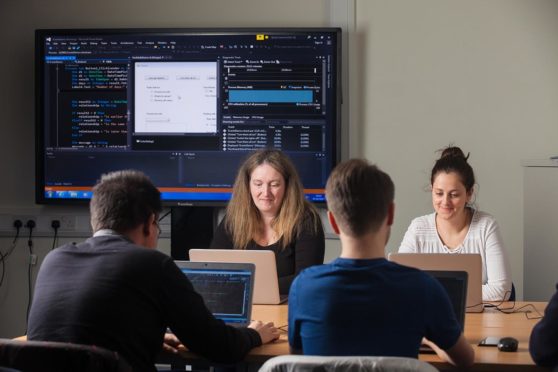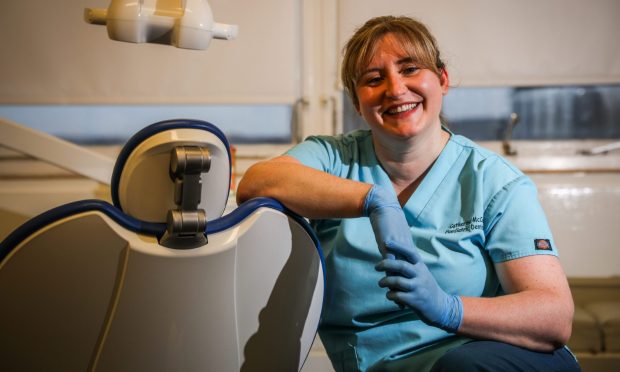Would you like to join one of the fastest-growing industries in Scotland, which contributes £4.9billion to the Scottish economy and supports nearly 100,000 jobs?
The growth of the digital industry in Scotland has continued throughout the pandemic, so that now around 13,000 jobs are created yearly in the sector.
However the worrying news is that labour market statistics show that only 5,000 new recruits are being produced each year through further and higher education routes and modern apprenticeships.
According to the Scottish Technology Industry Survey carried out by Scotland IS, 75 per cent of employers are currently experiencing difficulties in recruiting qualified digital staff, despite the fact that the average salary for a job requiring digital skills is currently sitting at £36,900 – which is 26 per cent higher than the Scottish average.
When you add to this the fact that currently 82 percent of all job applications require digital skills, you have to agree that there has never been a better time to start thinking about developing new skills and gaining a qualification in digital technologies or computing.
Fife College is determined to address this digital skills gap and help employers to fill these new roles, by encouraging individuals of all ages to consider studying one of a wide range of full-time and part-time computing and digital technology courses starting in August this year.
These courses cover subjects such as computer games development, digital and web design, mobile applications development, 3D animation as well as computing subjects, such as networking, computing software and cyber security.
 Stewart McDonald, the Faculty Director of Creative Industries at Fife College said: “The technology industry in Scotland is forecast to be the fastest growing sector in Scotland in the next few years, but there’s currently an urgent skills gap.
Stewart McDonald, the Faculty Director of Creative Industries at Fife College said: “The technology industry in Scotland is forecast to be the fastest growing sector in Scotland in the next few years, but there’s currently an urgent skills gap.
“Tech companies are urgently looking for new staff but are finding a lack of qualified applicants, and Fife College wants to help address that. We’re offering a range of digital and computing courses that can help provide individuals with the skills they need to find a job in the sector.”
He added: “Given the growth we’ve seen in recent years, and the high salaries that are often on offer, it’s an exciting time to be working in the industry. That’s why we’re encouraging anyone looking for a new start to their career to get in touch with us.
“Whether you choose a future in games development or coding, healthcare or tourism, we believe the possibility of a digital career is open for everyone.”
If you would like to find out more about the range of full-time and part-time courses in computing and digital technologies at Fife College, as well as the range of opportunities that the digital tech sector has to offer, then visit the Fife College website.
With qualifications available at every level of study, from introductory level courses right up to HNCs, HNDs and even degrees, you will gain the practical skills and knowledge that employers are looking for in a qualified digital applicant.
You could even study some subjects on a part-time basis, allowing you to fit your learning around work and other commitments. So whether you have just left school and are looking forward to your first job, or you are considering a change of career and returning to studying later in life – don’t worry, you won’t be alone.
Hundreds of students of all ages apply for digital technologies courses at Fife College every year. And so could you!
So what are you waiting for? Apply today and start your new career in digital with Fife College!











